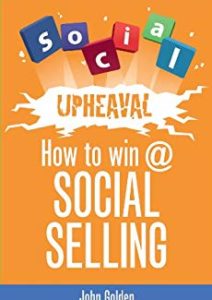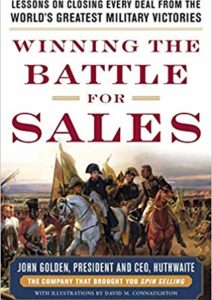- What is your definition of salesman?
- How is a salesman different from someone in another occupation?
- What attitudes do you think a salesman should have to be successful?
- What attitudes would hinder him?
Interesting questions to which the answers would probably not have differed much were they asked in 1949 when the play debuted or in any subsequent decade up to quite recently. Of course the role has evolved during that time and different approaches and styles have drifted in and out of vogue but what has remained constant is the almost singular nature of the job. The salesperson (not the anachronistic “salesman” as referenced in the question) has always stood proudly on the frontier, eagerly pushing forward with a pioneering spirit, with a preference for working alone and a healthy disdain for bureaucracies or the latest fads that “get in the way” of closing the deal. (Willy Loman, the play’s central figure, would certainly have seen himself like this in the early part of his career).
And let’s face it, companies (and probably most of us) have long celebrated and reinforced this almost gladiatorial persona. Take, for example, the constant search for and elevation in status of “hunters” and those considered to be “aggressive” salespeople. Indeed it is not an accident that when the Challenger Sale book was released a few years ago it caught the immediate attention of sales leaders. The title resonated with many of them because it again spoke to what many perceive to be the combative nature of sales.
But consider for a moment the changes in buyer behavior that social media and online professional networks have enabled. Salespeople are now faced with a well informed and networked buyer. One that is well capable of severely restricting and controlling the access they grant to any salesperson. And even when they do grant such access, they are largely unimpressed by what they consider to be the outdated and tired methods many salespeople still try to “use on them.”
As a result there is much soul searching now happening on what the salesperson of the future (and indeed the present) should look like. I offered a viewpoint in an earlier blog post, The Emergence of Salesperson 2.0 as have others, indeed Traackr created an interesting infographic with what they considered to be 7 key attributes of the Modern Sales Pro. Traackr included such attributes as them being thought leaders, knowledge megaphones, one foot in sales and one in marketing and being disruptive tech enthusiasts. In my list I included research skills, micromarketing, and business acumen as some that I believe are critical.
Now even the most cursory review of these different attributes immediately highlights that the successful salesperson of the future will not be the one who charges in where angels fear to tread armed with little more than their personality and a sales methodology, but rather the one that is more studious, business savvy, and comfortable engaging with buyers in more subtle and sometimes (initially) indirect ways. Obviously such an approach requires a level of patience, control, and a different kind of self-confidence — the kind that believes that although the road to a sale may be more circuitous or even longer, alignment with the way buyers want to buyer rather than how sellers want to sell will ultimately pay-off. (Willy Loman I think would perhaps struggle with this transition!)
And while we have all likely lamented in similar fashion to the play’s central character Willy when he despairs:
“After all the highways, and the trains, and the appointments, and the years, you end up worth more dead than alive.”
We may feel this way when we have just lost a deal, our flight has been cancelled and we are stuck in the only corner of O’Hare that has nowhere to eat, but in fact, this is a very exciting time to be in sales and business in general as we begin to engineer probably the biggest paradigm shift in recent history.
But for now – let me turn those questions from the teacher’s guide to Death of a Salesman over to you – how would you answer them today?
Editor’s Note: This is the first monthly blog post by John Golden, Chief Strategy Officer of Pipeliner CRM.
Related Posts:
- Four Thoughtful Strategies to Make 2015 Your Best Year
- Making Better Mistakes: The Odd Life of an Entrepreneur
- Book Review: Agile Selling by Jill Konrath






